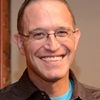What if you wanted to open up a coffee shop in a hip, urban neighborhood? Chances are you would already face competition from other indy shops, Starbucks, and the local equivalent of Dunkin Donuts. How could you go about differentiating yourself?
Don't miss a MarketingProfs podcast, subscribe to our free newsletter!
The main problem is simple: You and your competitors basically sell the same thing. This means that your point of differentiation will have little to do with your product and everything to do with creating an aura around that product that other's find fascinating.
One way to do this, according to this week's guest on would be to offer a $500 cup of coffee. The $500 cup of coffee would make your shop fascinating because it activates several of the fascination triggers that Sally describes in her book, Fascinate: Your 7 Triggers to Persuasion and Captivation.
First of all, the $500 cup of coffee activates the "mystique" trigger: Why does it cost so much? What could possibly be in it? Is the "sugar" crushed diamonds? The "cream" liquid gold?
Second of all, it activates the "prestige" trigger: Well, if they serve a $500 cup of coffee, they must attract a rather high-rolling clientele. I wonder who I'll meet at the shop?
Thirdly, this holy grail of java might trigger the "passion" trigger, creating a heightened desire for the coveted $500 cup. If it costs $500, it must taste amazing!
Finally, since there is something undeniably decadent about it, the $500 cup of coffee would trigger the "rebellion" trigger, for in the days of the Occupy movement, dropping five bills on a cup of joe definitely sends the signal, "I don't care what anybody thinks about this! I'm going to do it!"
What about the remaining three triggers? Well, if you got the message out that you put as much care into brewing your $2 cup as you do the $500 cup, with the same focus on quality and consistency, then you'd be pushing the "trust" trigger.
If you set a limit on how many $500 cups you were willing to serve—"Only three left!"—you'd be working the "alarm" trigger.
And if you could make the claim that you were both the inventor of the $500 cup of coffee and that studies had proven it 2000 times more powerful than a regular cup, you'd be playing with the "power" trigger.
That, in a nutshell, is how you might apply Sally's approach to the puzzle of brand differentiation. However, as Sally explains in this podcast, things get a lot more interesting when people begin thinking about how her lessons could be applied to their own lives. After all, as a study she conducted along with the folks at Kelton Research showed, people would be willing to pay, on average, $288/month to be the most fascinating person in the room!
What make fascination on a personal level so interesting is that, as Sally demonstrates, we are hard-wired to be fascinating (as well as to succumb to fascination). In other words, it should come naturally to us. The sad part is it doesn't.
Why not? Well, according to Sally, we tend to lose touch with our "unique fascination strength" as we grow up. Thus, becoming fascinating means rediscovering those things that made us (and potentially make us) fascinating in the first place.
As Sally puts its, "The goal is not to learn how to be fascinating; the goal is to unlearn how to be boring."
Finally, if you would like to see Sally live, then come on out to SocialTech 2012 in March in Seattle!
...sign up for free to continue reading
Don't miss a MarketingProfs podcast, subscribe to our free newsletter!
Published on January 25, 2012





